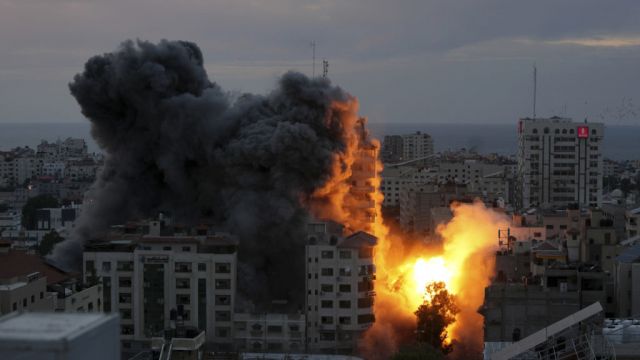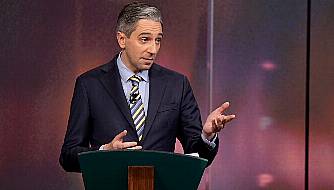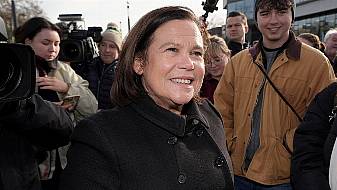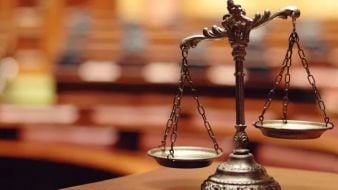“Nobody wanted to see this violence,” the Palestinian ambassador to Ireland, Dr Jilan Wahba Abdalmajid, has said.
Palestine had a right to self-determination and Hamas is a part of the Palestinian people, she told RTÉ radio’s Morning Ireland.
The ambassador was speaking after an attack by Hamas caught Israel’s military and intelligence apparatus completely off guard this weekend, bringing heavy battles to its streets for the first time in decades.
Israel formally declared war on Sunday, portending greater fighting ahead, and a possible ground assault into Gaza – a move that in the past has brought intensified casualties.
When asked her opinion on the Hamas attacks on Saturday, Dr Wahba Abdalmajid said she had been really shocked by it, but that she was not there to criticise Hamas. She said she had been shocked by the information contained in the RTÉ reports that mentioned how the Israelis had suffered.
“You ignore 2 million Palestinian people who really endured the occupation, oppression, humiliation and violation of international law under the Israeli occupation for more than four decades. Today, we are talking about an all-out war that has been declared by the Israelis against the Palestinian people. You ignored those people.”
The ambassador said she wanted to talk about the “oppression and aggression and occupation and the suffering of the Palestinian people.”
The continued violation by Israel of international law could not continue, she said, adding that “there will be consequences.” Palestine had wanted the international community to assist in finding a just solution, but the Palestinians had been left without hope, she said.
“What do you expect from a people that really endured this oppression for decades to do? I mean, there is no protection. When you talk about the suffering of the Palestinian people, that they don't see any hope for the young generations, that they didn't see any change for decades.
"What do you expect those people to think about it? I mean, we have a just cause, we have the right to defend ourselves. We have the right to self-determination. We are human beings. We're not less human beings than any other humans.”
When asked again about her feelings about what Hamas did on Saturday, Dr Wahba Abdalmajid said that before talking about Hamas and what was going on in Palestine it was necessary to talk about the “root causes of the grave situation.”
“Nobody wanted to see this violence. No one wanted to talk about killings. But at the end of the day, I'm here representing my people. I wanted to talk about this feeling.”
The situation was deteriorating and it was getting complicated, she said as the Israeli prime minister, Benjamin Netanyahu, had declared he would wipe out Gaza. “What do you think about the 2 million Palestinians who live in this ... blockade? The Gaza Strip [has] suffered from blockade for the past 17 years.”
Dr Wahba Abdalmajid said that Hamas was part of the Palestinian people whether one agreed with them or not.
“We the Palestinians are calling on the international community to protect us, to protect the Palestinian people from Israeli aggression.”
Aid to Palestine
Independent TD Cathal Berry called for financial aid to the Palestinian Authority to cease, but for humanitarian aid to continue.
The former Army Ranger told RTÉ radio’s Morning Ireland that taking hostages was unacceptable and Ireland had to be “very, very vocal” in condemning both Israeli and Hamas aggression. Hostage taking was a very sensitive issue as a number of Irish troops had been taken hostage and executed by both sides in the past, he said.
“So it's a red line issue for Ireland, and we should be very, very forthright and make that very, very clear.
“We have to get our point across that what happened over the weekend was completely unacceptable.” Actions were more important than words. Hamas had called for a flare up in violence in the West Bank, but that had not happened. If the Palestinian Authority had wanted that to happen it would have happened, so the Authority had to be commended for that at least, he said.
Financial aid for the Authority, for administration and governance should be stopped, but not funds for schools and hospitals, it should even be increased, he urged.
Dr Berry said he, and he believed most Irish people, supported the Palestinian right to resist the occupation of their land, but there were human rights issues and there was a requirement not to “stray beyond the norms of a conflict. And that's what happened over the weekend.
“What happened is completely unacceptable. And we can't we can't be seen to not condemn any kind of bloodletting. And I am concerned about some reports on social media in Ireland over the weekend almost cheerleading what happened as though we should be supporting it. There's a big difference between supporting the Palestinian people and supporting the actions of Hamas over what happened.”
Pilgrims
Meanwhile, the editor of The Irish Catholic newspaper has told of the “nerve-wracking” experience of a group of Irish pilgrims currently visiting Israel.
Michael Kelly told RTÉ radio’s Morning Ireland that the group had been on the outskirts of Jerusalem when they heard sirens going off indicating that there had been rocket attacks. People were getting messages from home from family members who were seeing the attacks on television and were obviously concerned, he said.
“So we moved very, very quickly to try to get everyone back to the hotel and keep everyone calm. And everyone was able to contact loved ones at home. But it was a very grim experience and it was obvious as well, I mean, one could feel the tension in the air, one could feel the uncertainty. Local people really were just shaking their heads.”
Everyone he had spoken to was expecting more Israeli casualties. It was also obvious that there would be more casualties in Gaza too, he said.
“I would say people are looking at the whole thing with trepidation because the situation is so unprecedented. Normally, there's a certain rulebook around these things. Normally one would say Hamas will fire rockets into Israel, Israel will fire some rockets back. And then usually very quickly it calms down again. Egypt intervenes, Qatar intervenes, the United States. But because of the nature of this, I think no one really knows where this is going to go. And it's very, very obvious on the highways and the roads, even in the north of Israel, that there's an enormous troop mobilisation.
“We passed a very long line of two convoys yesterday in the Galilee region. And you can see bus stops at various junctions a lot of young men and young women reserve soldiers who have been called up and are waiting there at the junction, one presumes to be to be taken to the army bases or to the front at Gaza, because the Israelis think they've already amassed 100,000 troops there on the southern border.”
Mr Kelly said his group had been scheduled to return to Ireland on Thursday, but they were now trying to get home on Tuesday.
“People are anxious. They've never been in a situation like this. So obviously we're doing our best to try to keep people calm, but obviously we don't want to expose people to the risk as well. So there was a fair deal of consensus when we met with the groups last night that people would like to try to get home as soon as possible.”







